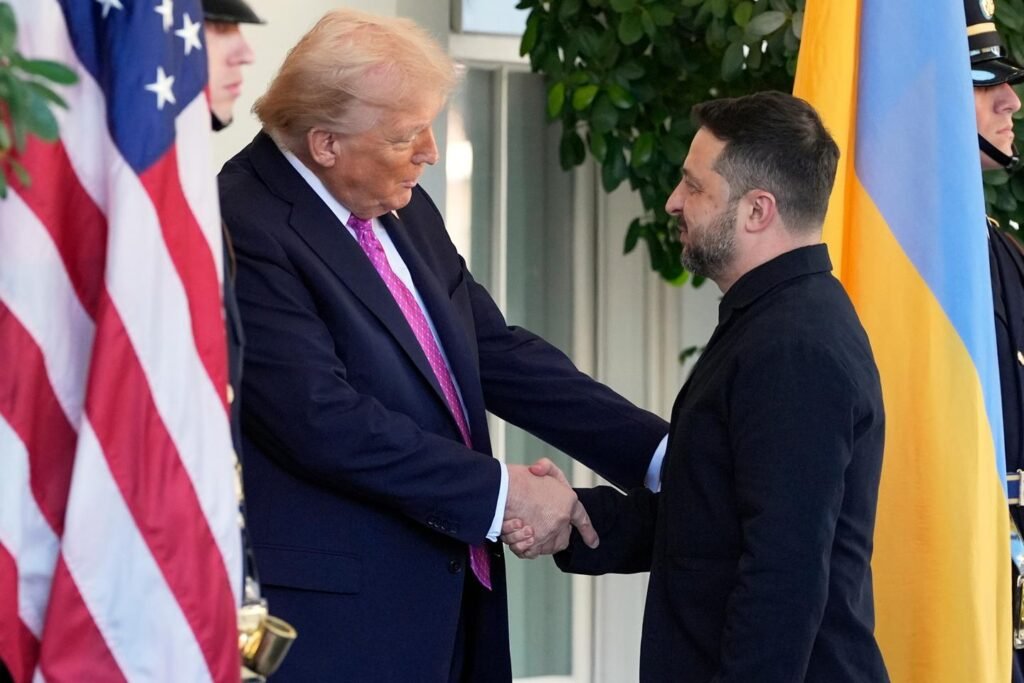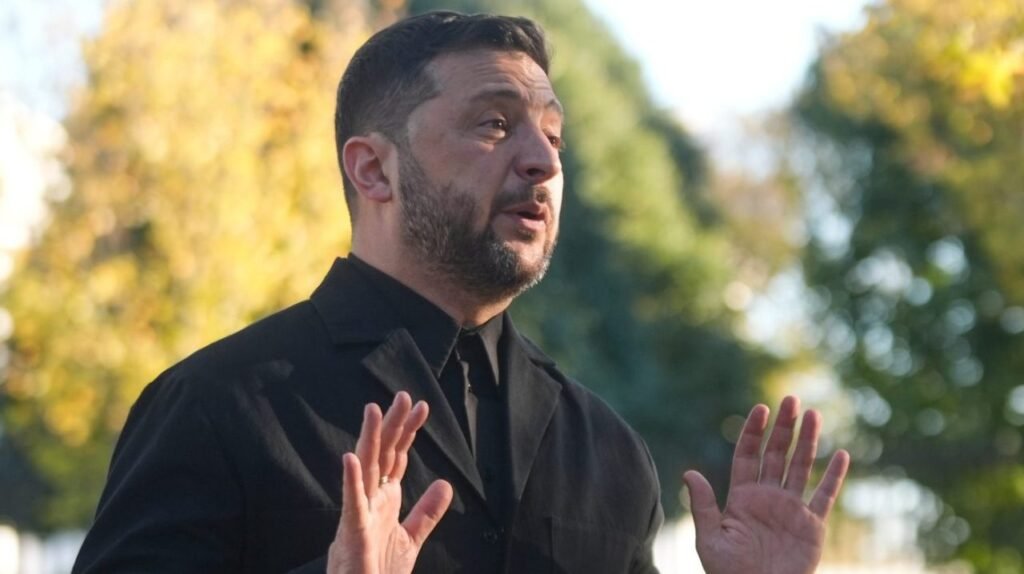The state’s largest Indigenous group on Saturday urged President Donald Trump to declare a national emergency in the wake of damage to Western Alaska caused by Typhoon Halong.
The Alaska Federation of Natives also named a new co-chair and passed measures:
• Strongly opposing a proposal from U.S. Rep. Nick Begich III that opponents say would reduce protections in the Marine Mammal Protection Act for the seals, walrus, whales and other animals that Natives hunt for subsistence.
• Urging protection of the federal subsistence program that helps Alaska Natives put food in the freezer, amid a review by the federal government prompted by a sport hunting group.
• Calling on Congress to require that the state of Alaska disburse $81 million in impact aid to schools.
Those actions and others came as the organization wrapped up its three-day convention in Anchorage.
The resolutions spell out the Native group’s political plans for the coming year as it works with government leaders and others to protect Native rights.
Some 1,400 delegates who attended the convention this year from communities across Alaska voted on the measures. Thousands of other Native people also attended the meeting, one of the largest conventions in the state.
Calling for an emergency declaration
The group’s 59th annual gathering was dominated by discussions about the storm that devastated the villages of Kipnuk and Kwigillingok along the Bering Sea coast last weekend, leaving one person dead and two missing, and damaging homes and structures in communities across Western Alaska.
The storm has raised questions about when or if the more than 1,000 displaced villagers will be able to return.
Interior Secretary Doug Burgum said in a live virtual speech to the convention Friday that the federal government will do everything it can to help with the response and rebuild the communities.
The ask comes as the Federal Emergency Management Agency, which handles federal disaster response, has undergone major staffing cuts, and new restrictions on how money is given to impacted communities have been enacted under the Trump administration.
The Native federation’s request for an emergency declaration from Trump also pressed for immediate federal aid and responders, along with the creation of a response center in Bethel, a hub city for the hardest-hit region.
“This action is really important for the whole state,” said Vivian Korthuis, head of the Association of Village Council Presidents, which provides social services in the Bethel region and sponsored the resolution.
“We are in an era where we are witness to Arctic typhoons,” she said. “This is the second we’ve seen in the last three years. It affects the whole state, and all of our communities.”
The measure also urges the federal government to invest in permanent infrastructure in rural Alaska to help reduce damage from future storms.
Major tribal organizations from the region, including the Association of Village Council Presidents, have separately called on Trump to declare an emergency. Gov. Mike Dunleavy and Alaska’s congressional delegation have also asked Trump to declare a federal disaster.
Protecting subsistence rights
Delegates at the convention also approved measures calling for the protection of the federal subsistence priority that gives a hunting and fishing priority to rural Alaska residents, mostly Natives.
“We are under attack,” Ben Mallott, president of the Native federation, told the crowd this week.
The federation and other Native groups have joined with the federal government to protect the program in a lawsuit against the state.
The Dunleavy administration, which has appealed the case to the U.S. Supreme Court, argues that it should manage fishing along the navigable rivers flowing through federal conservation areas, not the feds, a step that would deal a major blow to the program.
“If we win, it’s status quo,” Mallott said. “If we lose, it will be an almost impossible task to gain that ground back.”
In a separate threat to the rural subsistence priority, Safari Club International petitioned the federal government for the review of the federal program.
The sport hunting group seeks to limit the subsistence program and require that the federal program give deference to the state on wildlife conservation matters.
Burgum, in his speech to the convention, said the federal government is reviewing the program. Agencies will consider all aspects of it while consulting with Alaska Natives, he said.
Burgum said he understands that subsistence is a “deeply entrenched tradition” that defines Alaska Native people.
He also said he believes some subsistence regulations are overly restrictive and don’t make common sense. He did not provide details about those regulations.
“People should understand that we’re fully committed to supporting all the rights related to subsistence,” Burgum said.
Mallott, in an interview after Burgum’s speech, said Native people have concerns about the review, though the Native federation hopes to use it as an opportunity to improve the subsistence program.
“Any review could potentially undercut or eliminate some programs or policies,” he said. “A review could also be a good thing to actually open up opportunities to expand our preference.”
AFN will fight for “no net loss” in the program and make sure that Native people are informed and ready to comment during the process to protect subsistence, Mallott said.
In a separate resolution, the Native federation also called on Congress to recognize the salmon crisis in Alaska as a humanitarian crisis requiring more research, habitat protection and law enforcement.
Declining salmon populations across much of Alaska in recent years have caused “hunger, uncertainty, and increased hardship in our villages,” the resolution says.
Fighting reduced marine mammal protections
The Native federation also passed a measure pushing back against a “discussion draft” bill released by Begich, arguing that it will “significantly reduce” protections for marine mammals provided under the 1972 Marine Mammal Protection Act.
The approval came shortly before Begich spoke to a post-lunch audience at the convention, drawing occasional applause as he highlighted his efforts in Congress to support Native issues.
The 1972 act provides important exemptions for Alaska Natives for subsistence hunting and artists using marine mammal parts in their work.
“The ability of Alaska Native people to harvest marine mammals in perpetuity should not be curtailed in order to facilitate other commercial, industrial, and other activities that would authorize increased take of marine mammals,” the resolution said.
Delbert Rexford with the Ukpeaġvik Iñupiat Corp., from the North Slope region, said the proposed changes would threaten subsistence hunting and the Native federation’s opposition should be expressed in a roll call vote, rather than a voice vote.

The action required that representatives of regional groups line up to individually voice their support for the measure.
The resolution said an amendment to the act must require Native support. It said “minimal information has been shared with the Native community” about the proposal.
Begich, who didn’t mention the proposal in his speech, told reporters afterward that he will take the resolution under consideration.
“It’s a discussion draft for the purposes of having discussions, and we want to hear from all the constituencies, certainly from the Alaska Native community,” he said.
“I want to make sure that the bill is reflective of preserving the rights and capacities of the Alaska Native people to continue to subsist and utilize these marine mammals in their traditional ways,” he said.
Restoring the Native name to Foraker
In other measures, delegates called on the Alaska Legislature and Dunleavy to allow tribes to purchase limited entry permits, to combat the loss of commercial fishing permits owned by Alaskans.
They also urged the federal government to restore the Native name to Alaska’s third-tallest mountain.
Mount Foraker, at 17,400 feet, would be called Deenaalee Be’ot, the Koyukon Athabascan name for the mountain that means “child of Denali” or “Denali’s wife.”
The name also honors the taller neighboring peak, Denali, also a Koyukon Athabascan name that President Donald Trump this year formally replaced as Mount McKinley.
Convention delegates also passed a measure urging Alaska’s congressional delegation to “seek every means” to direct the state to disburse federal impact aid to more than a dozen local school districts.
“The State of Alaska made the decision to use the $81 million in federal ‘Impact Aid’ that is for schools as a replacement for state funding and is the only state in the country to use that federal money as a replacement for state money rather than an additive for local schools on or adjacent to federal land,” the resolution says.
Alaska receives tens of millions of dollars each year in school funding from the federal government called impact aid. That funding is intended to compensate school districts with federal land that cannot be taxed, such as tribal land and military bases.
A new co-chair
A throng of Alaska Native leaders took the stage to bid goodbye to longtime co-chair Ana Hoffman with gifts, songs and words of praise.
Hoffman, from Bethel, is stepping down as co-chair of the Native federation after 12 years. The tenure ties the record set by former co-chair Albert Kookesh.
She’d have stayed longer if she knew she was only tying Kookesh, she joked.
Dillingham resident Gayla Hoseth will fill Hoffman’s role.
“Ana has been a gift to the Native community,” said Sheri Buretta, chair of Chugach Alaska, a regional Native corporation in Anchorage.
“Because of her, the dream we have as Alaska Native people to thrive and collectively support each other continues,” said Nicole Borromeo, president of the ANCSA Regional Association, the group that represents regional Native corporations.
In a farewell speech, Hoffman recognized current and past leaders of the Native community for their contributions, including securing land rights for Alaska Natives and creating and growing the Native federation.
“Through your example, we work to repair, forgive, rejoin and resume our collective efforts to flourish,” she said. “Being involved with AFN, I’ve gained the utmost respect for the people that have dedicated their skills and talents here.”
As the convention ended Saturday afternoon, Hoseth told the crowd that she’s honored to serve the Alaska Native community as co-chair.
She said she’ll work to ensure that decision-makers understand “who we are, where we come from, and what we stand for.”







